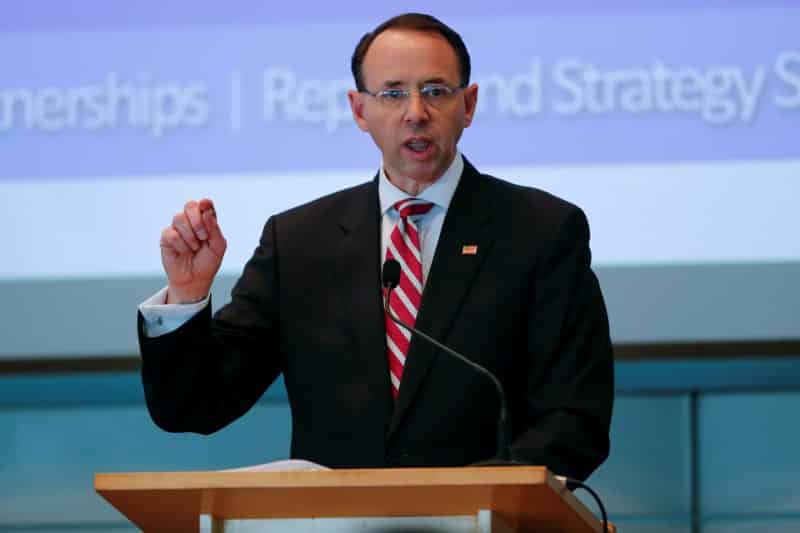The New York Times reports that former Deputy Attorney General Rod Rosenstein secretly limited the scope of former Special Counsel Robert Mueller’s investigation into Russian interference in the 2016 presidential election.
According to the report, former law enforcement officials said that Rosenstein secretly prohibited Mueller from looking into President Donald Trump’s financial ties to Russia and did not tell officials at the Federal Bureau of Investigation (FBI) — which reportedly meant there was no investigation into the matter.
However, one of Mueller’s prosecutors, Andrew Weissmann, disputed the notion that there was a secret order that restricted the investigation.
“NYT story today is wrong re alleged secret DOJ order prohibiting a counterintelligence investigation by Mueller, ‘without telling the bureau,'” Weissmann said in a tweet.
He added, “Dozens of FBI agents/analysts were embedded in Special Counsel’s Office and we were never told to keep anything from them.”
Also erroneous is NYT claim "Rosenstein concluded the F.B.I. lacked sufficient reason to conduct an investigation into the president’s links to a foreign adversary.” See DOJ Special Counsel Appointment Order, para. (b)(i). 2 of 2
— Andrew Weissmann (weissmann11 on Threads/Insta)🌻 (@AWeissmann_) August 31, 2020
The Times also reported that Rosenstein did not believe there was enough evidence to launch a counter-intelligence investigation into Trump’s ties to Russia and instructed Mueller only to conduct a criminal investigation into whether anyone violated the law regarding the 2016 election interference.
“I love Ken Starr,” Rosenstein reportedly told Mueller, adding, “But his investigation was a fishing expedition. Don’t do that. This is a criminal investigation. Do your job, and then shut it down.”
However, Weissmann also disputed that portion of the report, “Also erroneous is NYT claim ‘Rosenstein concluded the F.B.I. lacked sufficient reason to conduct an investigation into the president’s links to a foreign adversary.'”
Weissmann advised people to read a portion of the special counsel appointment order that directed Mueller to investigate “any links and/or coordination between the Russian government and individuals associated with the campaign of President Donald Trump.”
Former Deputy FBI Director Andrew McCabe told the Times, “We opened this case in May 2017 because we had information that indicated a national security threat might exist, specifically a counterintelligence threat involving the president and Russia.”
“I expected that issue and issues related to it would be fully examined by the special counsel team. If a decision was made not to investigate those issues, I am surprised and disappointed. I was not aware of that,” he added.
Rosenstein reportedly told Mueller to talk to him if he wanted to expand the scope of his investigation. However, Mueller told Congress that he did not conduct a counter-intelligence investigation.
Weissmann wrote a book that details “the inside account of the Mueller Special Counsel Investigation,” which is scheduled to be published on September 29.
























